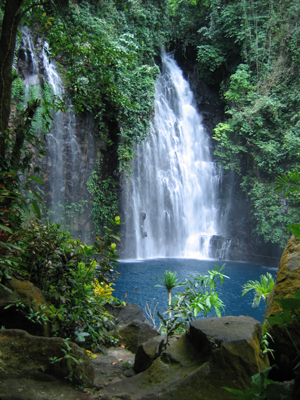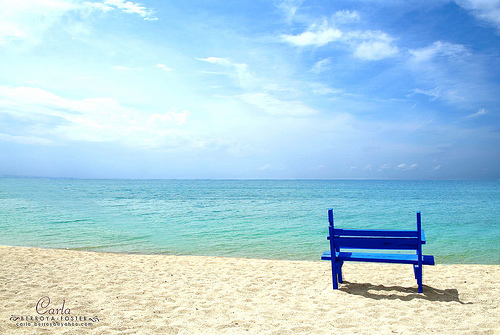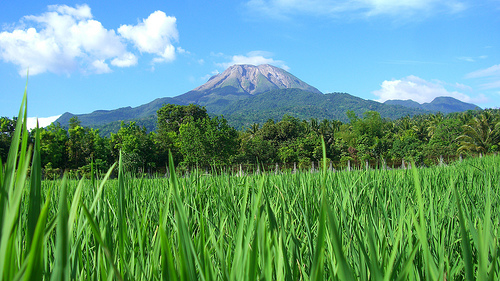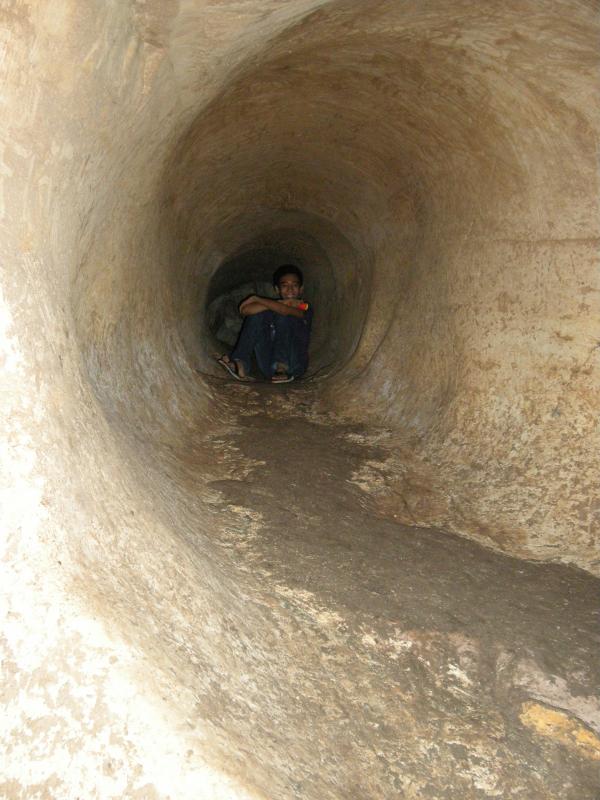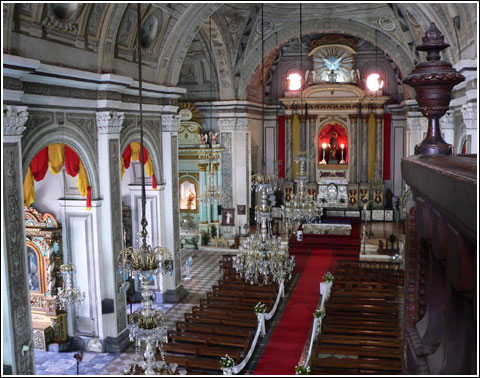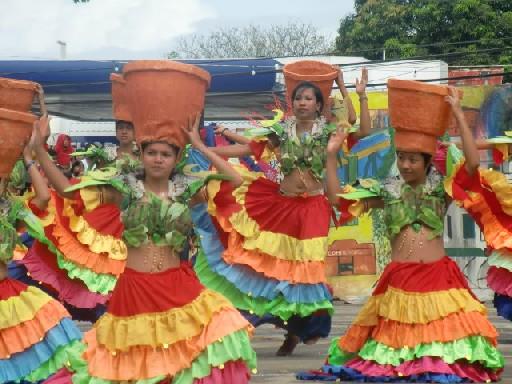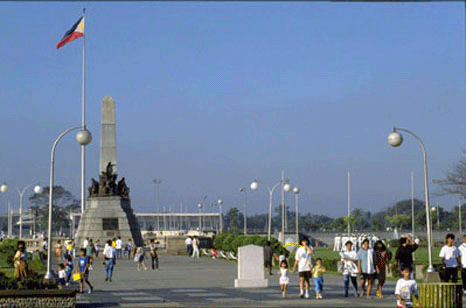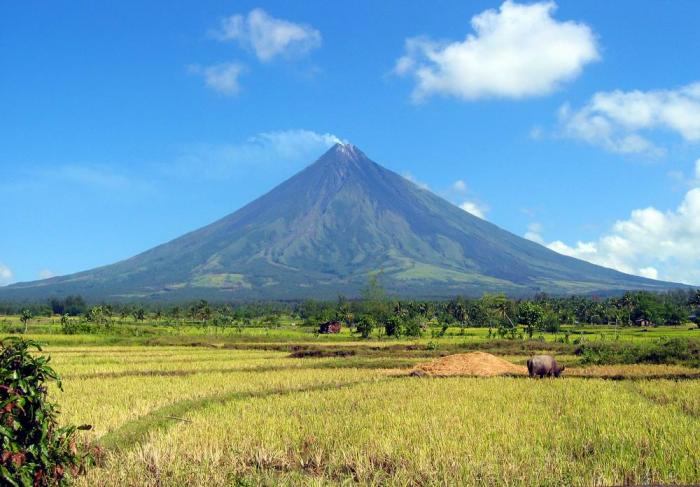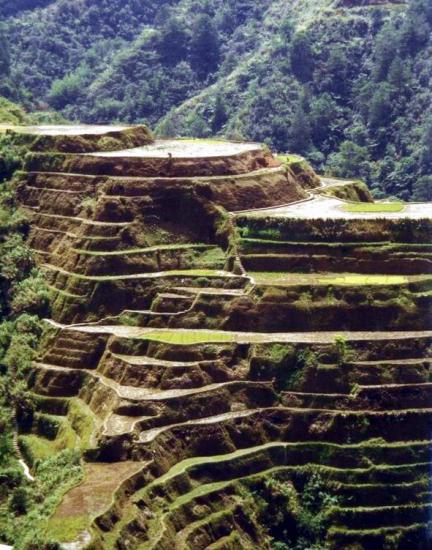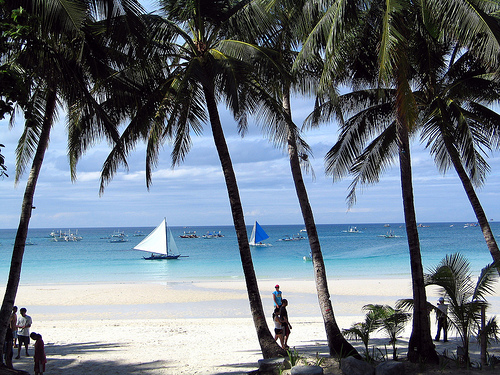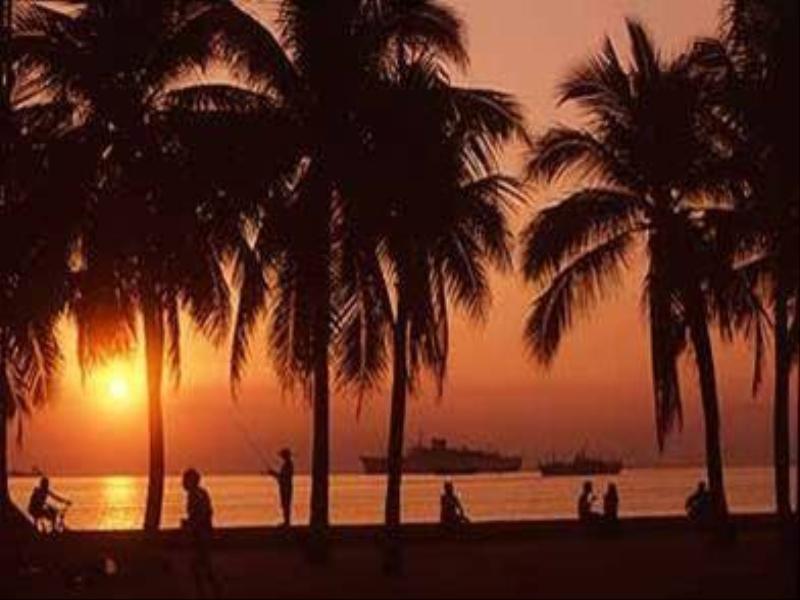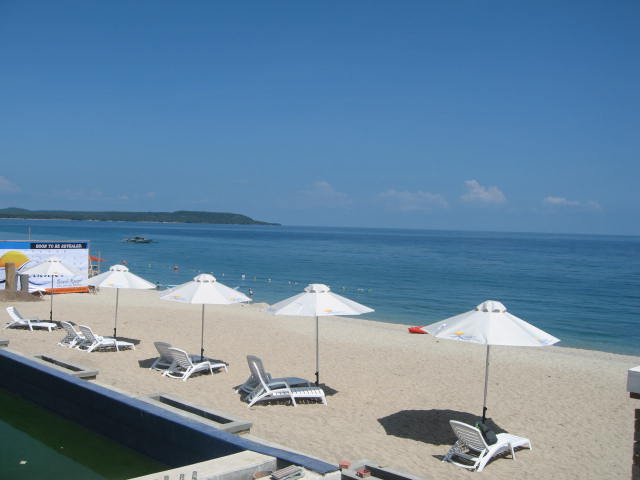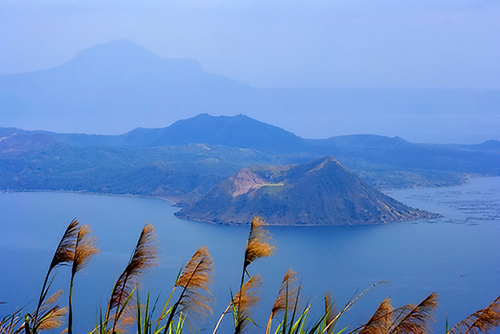Posts Tagged ‘Rizal Province’
RIZAL PROVINCE
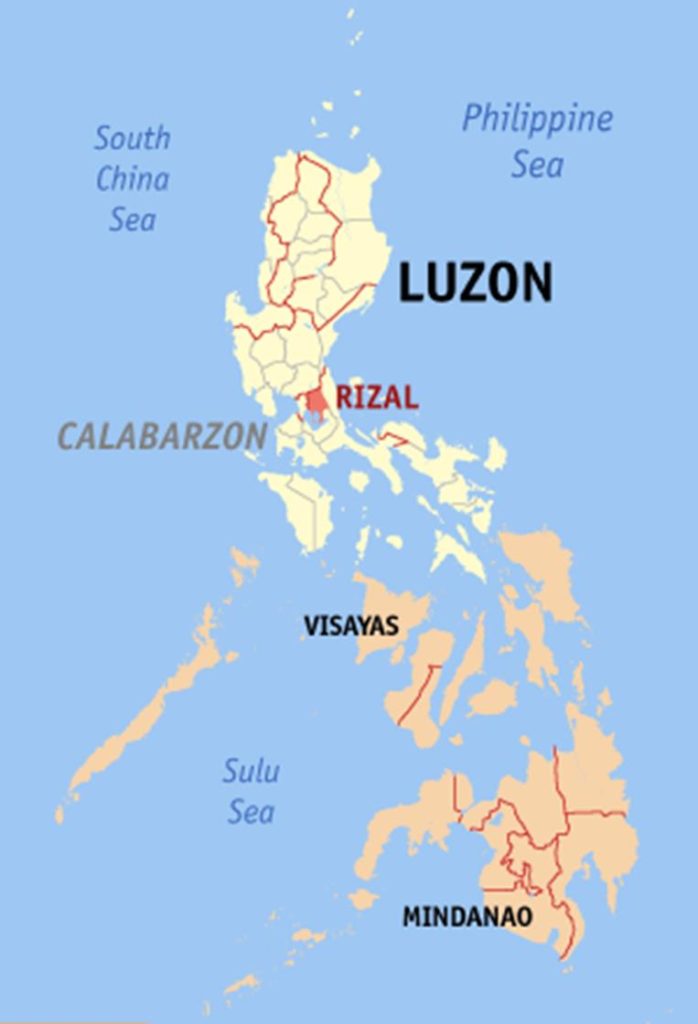 By Eugene Alvin Villar (seav) – English Wikipedia, CC BY-SA 3.0, https://commons.wikimedia.org/w/index.php?curid=318984
By Eugene Alvin Villar (seav) – English Wikipedia, CC BY-SA 3.0, https://commons.wikimedia.org/w/index.php?curid=318984
Rizal, officially known as the Province of Rizal, is a province in the Philippines located in the Calabarzon region, 16 kilometers (9.9 mi) east of Manila. The province is named after José Rizal, one of the main national heroes of the Philippines. Rizal is bordered by Metro Manila to the west, Bulacan to the north, Quezon to the east and Laguna to the southeast. The province also lies on the northern shores of Laguna de Bay, the largest lake in the country. Rizal is a mountainous province perched on the western slopes of the southern portion of the Sierra Madre mountain range.
The provincial capital of Rizal is situated in Antipolo while Pasig, Metro Manila, outside the jurisdiction of the province, is the official capital. Read More: https://en.wikipedia.org/wiki/Rizal
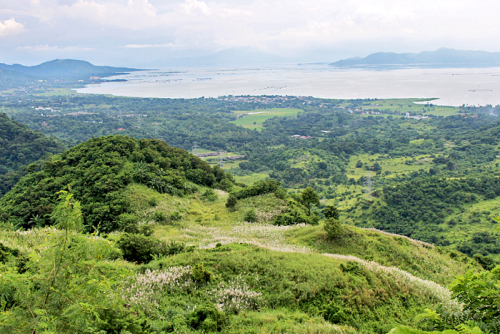 Photo from: https://enzotacadao.wordpress.com/tag/rizal-province/
Photo from: https://enzotacadao.wordpress.com/tag/rizal-province/
Rizal covers a total area of 1,191.94 square kilometers (460.21 sq mi) occupying the northern-central section of the Calabarzon in Luzon.
Located 20 kilometres (12 mi) east of Manila, commuters take approximately an hour to reach the provincial seat which is at Antipolo. Generally hilly and mountainous in terrain, most of the province’s southern towns lie in the shores of Laguna de Bay, the country’s largest inland body of water. The province has an area of 1,191.94 square kilometers (460.21 sq mi).
Talim Island, the largest island situated within the Laguna de Bay, is under the jurisdiction of the province. Read More: https://en.wikipedia.org/wiki/Rizal
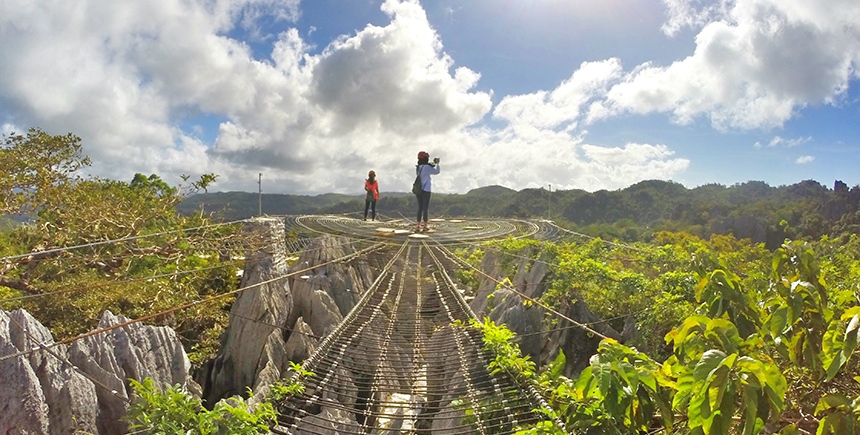 Photo from: https://waytogo.cebupacificair.com/things-to-do-in-rizal/
Photo from: https://waytogo.cebupacificair.com/things-to-do-in-rizal/
The population of Rizal in the 2015 census was 2,884,227 people, with a density of 2,400 inhabitants per square kilometer or 6,200 inhabitants per square mile. Due to its location being in the heart of the Katagalugan, almost all of the residents of Rizal mainly speak Tagalog. English and Filipino are used as second languages respectively.
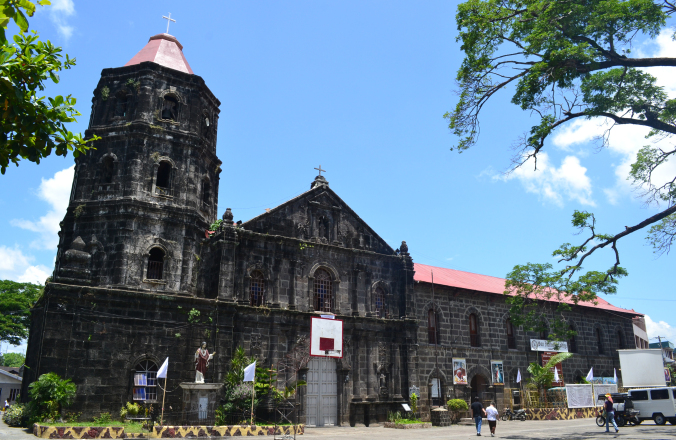 Photo from: https://inkdependent.wordpress.com/2012/04/09/church-hopping-at-rizal-countryside/
Photo from: https://inkdependent.wordpress.com/2012/04/09/church-hopping-at-rizal-countryside/
Roman Catholicism is the predominant religion with about 80 percent adherence. And 2% are from Members Church of God International of Bro. Eli Soriano. Various Christian groups exist such as Iglesia Filipina Independiente, Born-again Christians, Jesus Is Lord Church, Iglesia Ni Cristo, Jehovah’s Witnesses, Baptist, Church of Christ of Latter Day Saints, El Shaddai (movement) Methodists, Presbyterians, Seventh-day Adventist and other Evangelical Christians. Muslims, Anitists, animists, and atheists are also present in the province.
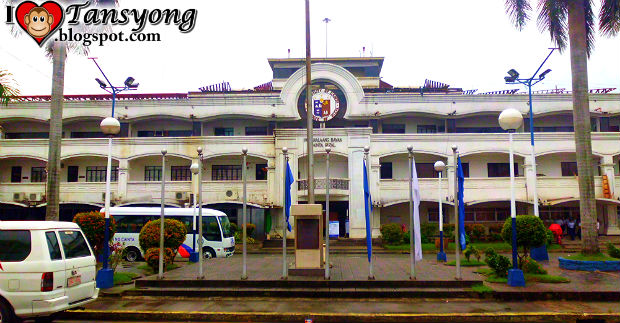 Photo from: https://www.ilovetansyong.com/2013/09/cainta-rizal-your-gateway-to-east.html
Photo from: https://www.ilovetansyong.com/2013/09/cainta-rizal-your-gateway-to-east.html
Before the 1990s, the primary source of economy in Rizal province were the huge piggery estates owned by Manila-based families. In the recent years, the province became one of the most progressive provinces in country, owing to its proximity to Metro Manila, the economic center of the Philippines. Antipolo, Taytay and Cainta serve as the economic centers of the province, while Angono, Rodriguez, Morong, San Mateo, Tanay, Binangonan and Teresa are taking successful steps to urbanize areas within their jurisdiction. Other areas of the province are having difficulty to start the urbanization process, mainly because of the lack of main roads to connect these to economic centers.
In a study recently conducted by the National Statistics Coordination Board (NSCB),Rizal province came out to be the Philippines’ least poor province with a poverty incidence rate of 3.4%, even lower than that of the National Capital Region or Metro Manila. In April 23, 2013, the National Statistics Coordination Board (NCSB) reported that Rizal, from being the least poor province in poverty incidence moved down to the 3rd Place, with Cavite taking over as the least province by 4.1% (compared to Rizal’s 7.6%) and Laguna for 2nd with 6.3%.
Antipolo, the province’s capital city, is the center of trade and exchange, tourism, government and economy. It is also a center of education and sports because of the availability of various educational and physical training facilities. Acclaimed of its scenic attractions, the city also produces agricultural products such as cashew nuts and rice cakes. Taytay, the province’s center of garment and textile manufacturing, is also the town where the country’s largest mall operator runs a store near the town center. Meanwhile, Cainta serves as the center of business-process outsourcing (BPO) businesses in the province, aside from being known for the presence of several shopping centers and delicacies such as bibingka or rice cakes. Read More: https://en.wikipedia.org/wiki/Rizal
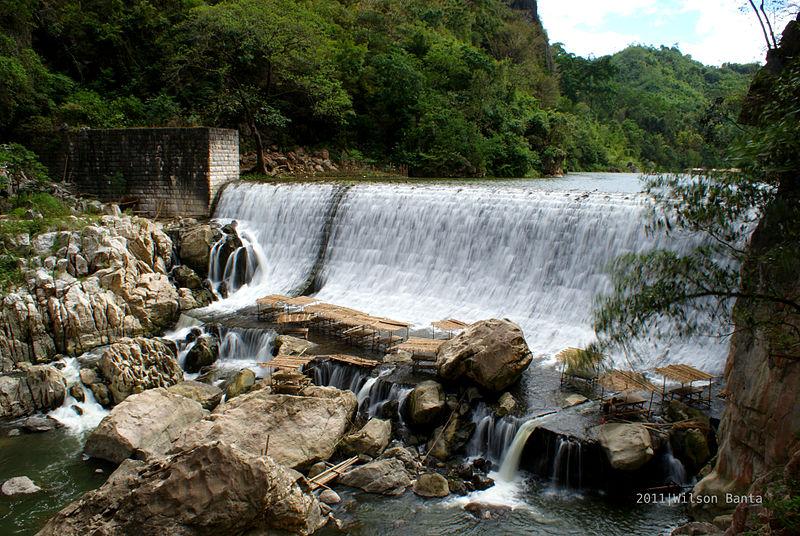 Photo from: https://www.vigattintourism.com/tourism/articles/Explore-the-Best-of-Rizal-Province
Photo from: https://www.vigattintourism.com/tourism/articles/Explore-the-Best-of-Rizal-Province
Watch the Videos:
TABLE OF CONTENTS
The Province of Rizal is Under the Calabarzon Region
The Mountainous Province of Rizal
How to Get to the Province of Rizal
Popular Places to Visit in the Province of Rizal
Colorful and Exciting Festivals in the Province of Rizal
How to Enjoy and Have Fun in the Province of Rizal
Province of Rizal Photo Gallery
Province of Rizal Video Collection
Other Visitors Also Viewed:
Malajog Beach, Ridge Nature Park and Zipline In One Place
Be Amazed at the Nueva Ecija “Taong Putik” (Mud Man) Festival
Take the Day Off and Relax at the Minalungao National Park in Nueva Ecija
Palawod Festival Celebrates the Town’s Fish Bounty
Colorful and Meaningful Festivals and Events in Guimaras
Get Inside the 800-Meter Cantabon Cave Part 2
Mt. Malindig – a Popular Mountain Climb in Marinduque
The Untouched Natural Beauty of Camotes Island
Lanzones Festival – Thanksgiving Celebration for the Sweet Fruit
Come and Celebrate Aggao Nac Cagayan

